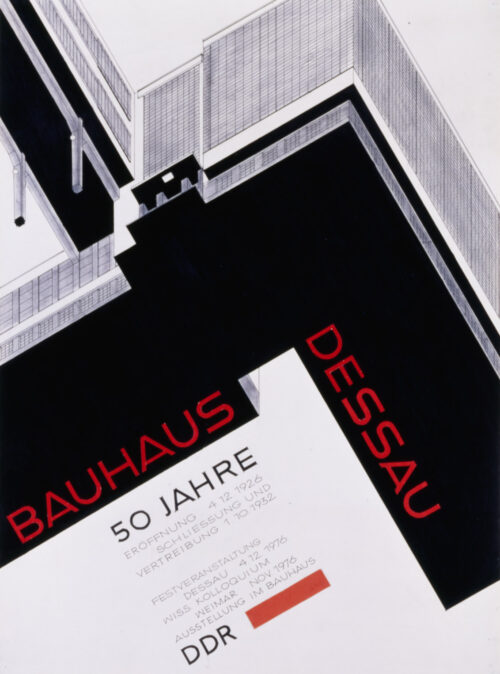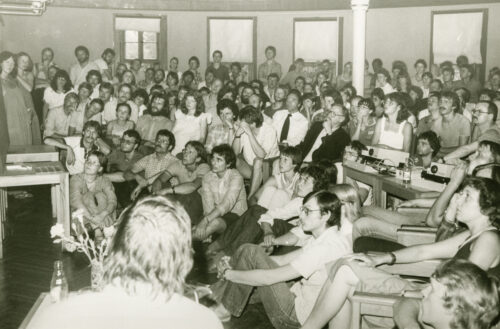International Bauhaus Colloquium, Weimar
The first International Bauhaus Colloquium took place in Weimar from 27 to 29 October 1976, just a few weeks before the reopening of Dessau’s Bauhaus building on December 4, fifty years after its construction. The event was hosted by Weimar’s College of Architecture and Civil Engineering, with co-organizers being the Building Academy of the GDR and the University for Industrial Design at Burg Giebichenstein in Halle. The participants, which included former Bauhaus members as well as researchers from home and abroad, both East and West, discussed the problem of renovating the Bauhaus building in a way that respected its historical character while also accommodating current needs.
At the time, the design theorist Heinz Hirdina (1942–2013) described this event as the first comprehensive attempt at explicating the current state of Marxist research into the Bauhaus movement. In his review for ‘form+zweck’ 1/1977, he wrote that the enduring essence of Bauhaus is revealed in the prioritizing of function, the choosing of mass-produced products over luxury ones, and the focus on the complete human environment. He declared that Bauhaus would enrich the methodological toolkit in terms of environmental and product design concepts as well as the aesthetics of everyday design.
The 1976 Bauhaus Colloquium marked the beginning of a prestigious scholarly gathering that met again in 1979, 1983, 1986, and 1989. It continued periodically after German unification as well, the most recent being the 14th International Bauhaus Colloquium marking the Bauhaus centenary in 2019.
Countries: GDR
Tags: Architecture, Environmental design, Housing and living, Product design


